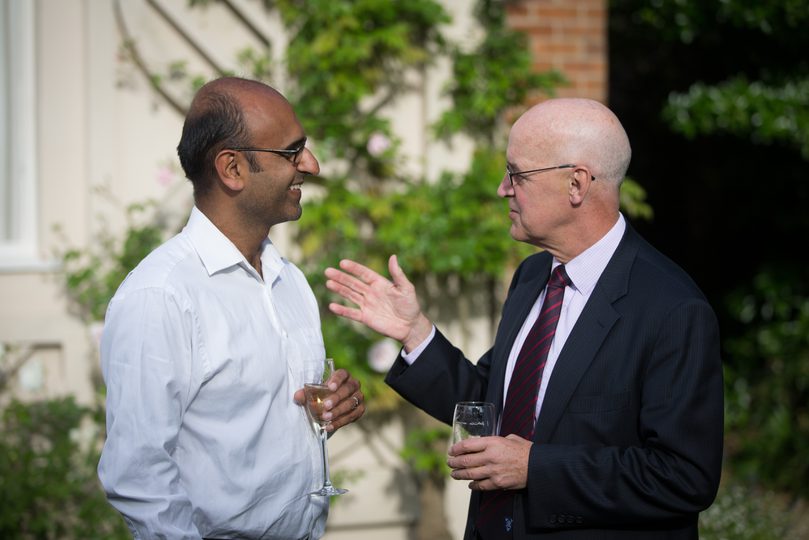
Members of the Oxford Martin School’s Advisory Council met on 10 June to receive updates on the work taking place across the school’s research programmes and to discuss the strategic direction of the school.
After a welcome by the University of Oxford’s Vice Chancellor, Professor Andrew Hamilton, and an update on developments over the past year by the School’s Director, Professor Ian Goldin, the main item for discussion was the strategic direction of the School for the period up to 2020. Professor Sir John Beddington, the school's Senior Adviser, gave feedback from his interactions with its wide range of research institutes and the advisory council engaged in a rich discussion on the future research programme and strategic agenda for the school, which continued over a dinner hosted by the Vice-Chancellor.
In addition to the strategic discussion, Advisory Council members engaged with a cross-section of the different programmes in the school, with presentations from Dr John Frater, Principal Investigator at the school’s Institute for Emerging Infections, Professor Sandra Fredman, Co-Director of the Oxford Martin Programme on Human Rights for Future Generations, and Professor Wendy Carlin, Director of Economic Curriculum Development at the Institute for New Economic Thinking at the Oxford Martin School.
Talks were also given on the recently-published inaugural Oxford Martin Policy Paper, ‘Mind Machines: The Regulation of Cognitive Enhancement Devices’ by Professor Julian Savulescu, Director of the Institute for Science and Ethics, and on ‘The Future of Employment’, a working paper by Dr Carl Frey of the Oxford Martin Programme on the Impacts of Future Technology, and Dr Michael Osborne, of the Machine Learning Research Group in the University of Oxford’s Department of Engineering Science, which has received widespread media attention.
Members were also given a tour of the redeveloped Oxford Martin School building, which in May won architects Berman Guedes Stretton a prestigious award from the Royal Institute of British Architects.
The school’s Advisory Council exists to ensure an international focus and experience from a broad range of sectors is brought to bear on the school’s research agenda and public engagement strategies. Its members provide valuable advice and ongoing support to the school, through the annual meeting and other visits and events throughout the year.